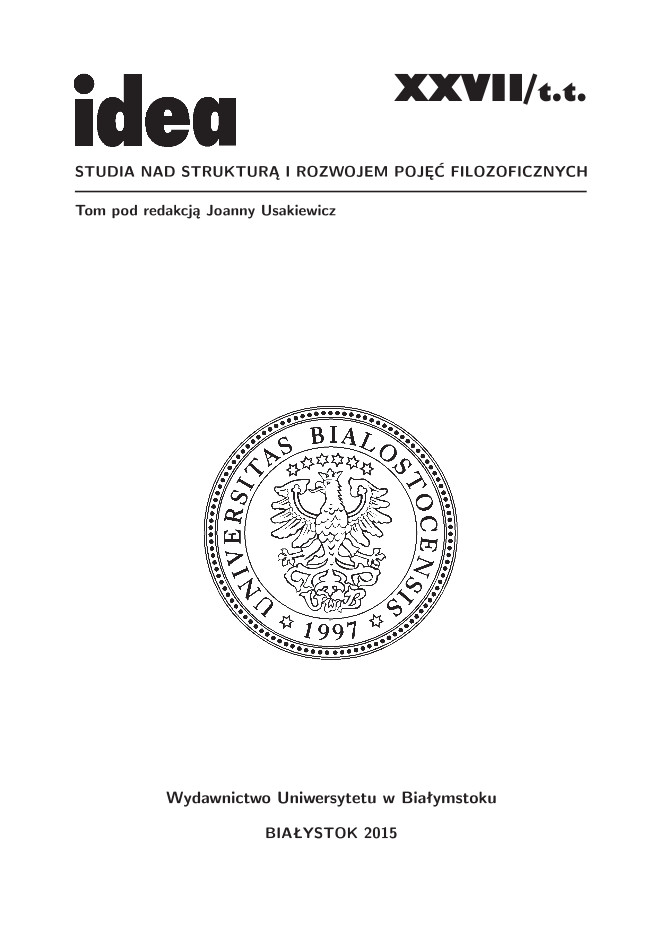O wieloznaczności terminu „pojęcie” w filozofii Hobbesa
On the Ambiguity of the Term “Conception” in Hobbes’s Philosophy
Author(s): Krzysztof WawrzonkowskiSubject(s): Philosophy, History of Philosophy, Political Philosophy, Special Branches of Philosophy, Early Modern Philosophy, Philosophy of Law
Published by: Wydawnictwo Uniwersytetu w Białymstoku
Keywords: Hobbes; conception; Elements of law, natural and politic
Summary/Abstract: The article presents some results of preparing a Polish translation of Thomas Hobbes’s first important work, Elements of law, natural and politic. I focus on explaining various meanings of the term “conception” as it is used by Hobbes in this writing. In his philosophy Hobbes uses the term in three different ways. The first of them refers to sense (or sensation) and image arising on sense organs as a result of the movement of external bodies mechanically affecting them. In its second meaning “conception” is understood as imagination, described also as a decaying sense. According to the third use of the term, “conception” is a state of understanding of something, or possessing a conception caused by speech (complex imagination). Such an undertaking makes it possible to reconstruct the development of the meaning of the term within the philosophy of Hobbes and the relation between his early and later writings, namely Elements of Law, Leviathan and De Corpore.
Journal: Idea. Studia nad strukturą i rozwojem pojęć filozoficznych
- Issue Year: 1/2015
- Issue No: XXVII
- Page Range: 255-270
- Page Count: 16
- Language: Polish

